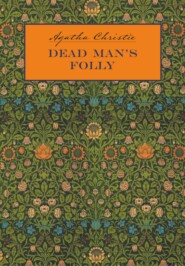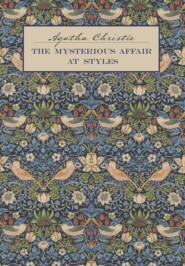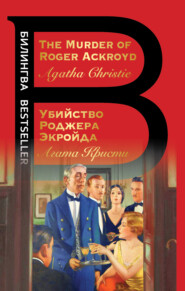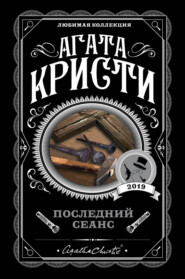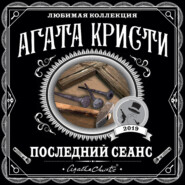По всем вопросам обращайтесь на: info@litportal.ru
(©) 2003-2024.
✖
An Autobiography
Настройки чтения
Размер шрифта
Высота строк
Поля
Cooks of any seniority were always ‘Mrs’. Housemaids and parlourmaids were supposed to have ‘suitable’ names–e.g. Jane, Mary, Edith, etc. Such names as Violet, Muriel, Rosamund and so on were not considered suitable, and the girl was told firmly, ‘Whilst you are in my service you will be called “Mary’.’ Parlourmaids, if of sufficient seniority, were often called by their surnames.
Friction between ‘the nursery’ and ‘the kitchen’ was not uncommon, but Nursie, though no doubt standing on her rights, was a peaceable person and respected and consulted by the young maids.
Dear Nursie–I have a portrait of her hanging in my house in Devon.
It was painted by the same artist who painted the rest of my family, a painter well known at that time–N. H. J. Baird. My mother was somewhat critical of Mr Baird’s pictures: ‘He makes everybody look so dirty,’ she complained. ‘All of you look as if you hadn’t washed for weeks!’
There is something in what she said. The heavy blue and green shadows in the flesh tints of my brother’s face do suggest a reluctance to use soap and water, and the portrait of myself at sixteen has a suggestion of an incipient moustache, a blemish from which I have never suffered.
My father’s portrait, however, is so pink and white and shining that it might be an advertisement for soap. I suspect that it gave the artist no particular pleasure to paint, but that my mother had vanquished poor Mr Baird by sheer force of personality. My brother’s and sister’s portraits were not particularly like, my father’s was the living image of him, but was far less distinctive as a portrait.
Nursie’s portrait was, I am sure, a labour of love on Mr Baird’s part.
The transparent cambric of her frilled cap and apron is lovely, and a perfect frame for the wise wrinkled face with its deep set eyes-the whole reminiscent of some Flemish Old Master.
I don’t know how old Nursie was when she came to us, or why my mother should have chosen such an old woman, but she always said:
‘From the moment Nursie came, I never had to worry about you–I knew you were in good hands.’ A great many babies had passed through those hands–I was the last of them.
When the census came round, my father had to register the names and ages of everyone in the house.
‘Very awkward job,’ he said ruefully. ‘The servants don’t like you asking them their ages. And what about Nursie?’
So Nursie was summoned and stood before him, her hands folded in front of her snowy apron and her mild old eyes fixed on him inquiringly.
‘So you see,’ explained my father, after a brief resume of what a census was, ‘I have to put down everyone’s age. Er–what shall I put down for you?’
‘Whatever you like, Sir,’ replied Nursie politely.
‘Yes, but–er–I have to know.’
‘Whatever you think best, Sir.’ Nursie was not to be stampeded.
His own estimate being that she was at least seventy-five, he hazarded nervously: “Er–er–fifty-nine? Something like that?’
An expression of pain passed across the wrinkled face.
‘Do I really look as old as that, Sir?’ asked Nursie wistfully.
‘No, no–Well, what shall I say?’
Nursie returned to her gambit.
‘Whatever you think right, Sir,’ she said with dignity.
My father thereupon wrote down sixty-four.
Nursie’s attitude has its echoes in present times. When my husband, Max, was dealing with Polish and Yugoslav pilots during the last war, he encountered the same reaction.
‘Age?’
The pilot waves his hands amiably: ‘Anything you please–twenty, thirty, forty–it does not matter.’
‘And where were you born?’
‘Anywhere you like. Cracow, Warsaw, Belgrade, Zagreb-as you please.’
The ridiculous unimportance of these factual details could not be more clearly stressed.
Arabs are much the same.
‘Your father is well?’
‘Oh yes, but he is very old.’
‘How old?’
‘Oh a very old man–ninety, ninety—five.’
The father turns out to be just short of fifty.
But that is how life is viewed. When you are young, you are young; when you are in vigour you are a ‘very strong man’ when your vigour begins to fail, you are old. If old, you might as well be as old as possible.
On my fifth birthday, I was given a dog. It was the most shattering thing that ever happened to me; such unbelievable joy, that I was unable to say a word. When I read that well-known cliche ‘so and so was struck dumb’ I realize that it can be a simple statement of fact. I was struck dumb–I couldn’t even say thank-you. I could hardly look at my beautiful dog. Instead I turned away from him. I needed, urgently, to be alone and come to terms with this incredible happiness. (I have done the same thing frequently during my later life. Why is one so idiotic?) I think it was the lavatory to which I retired–a perfect place for quiet meditation, where no one could possibly pursue you. Lavatories were comfortable, almost residential apartments in those days. I closed the heavy mahogany shelf-like seat, sat on it, gazed unseeingly at the map of Torquay that hung on the wall, and gave myself up to realization.
‘I have a dog…a dog…. It’s a dog of my own…my very own dog…. It’s a Yorkshire terrier…my dog…my very own dog….’
My mother told me later that my father had been much disappointed by the reception of his gift.
‘I thought the child would love it.’ he said. ‘She doesn’t seem to care about it at all.’
But my mother, always understanding, said that I needed a little time.
‘She can’t quite take it in yet.’
The four-month-old Yorkshire terrier puppy, meantime, had wandered out disconsolately into the garden, where he attached himself to our gardener, a grumpy man called Davey. The dog had been bred by a jobbing gardener, and at the sight of a spade being pressed into the earth he felt that here was a place where he could feel at home. He sat down on the garden path and watched the digging with an attentive air.
Here in due course I found him and we made acquaintance. We were both shy, and made only tentative advances to each other. But by the end of the week Tony and I were inseparable. His official name, given him by my father, was George Washington–Tony, for short, was my contribution.
Tony was an admirable dog for a child–he was good-natured, affectionate, and lent himself to all my fancies. Nursie was spared certain ordeals. Bows of ribbon and general adornments were now applied to Tony, who welcomed them as a mark of appreciation and occasionally ate bits of them in addition to his quota of slippers. He had the privilege of being introduced into my new secret saga. Dickie (Goldie the canary) and Dicksmistress (me) were now joined by Lord Tony.
I remember less of my sister in those early years than of my brother. My sister was nice to me, while my brother called me Kid and was lofty–so naturally I attached myself to him whenever he permitted it. The chief fact I remember about him was that he kept white mice. I was introduced to Mr and Mrs Whiskers and their family. Nursie disapproved. She said they smelt. They did, of course.
We already had one dog in the house, an old Dandy Dinmont called Scotty, which belonged to my brother. My brother, named Louis Montant after my father’s greatest friend in America, was always known as Monty, and he and Scotty were inseparable. Almost automatically, my mother would murmur: ‘Don’t put your face down on the dog and let him lick you, Monty.’ Monty, flat on the floor by Scotty’s basket, with his arm wreathed lovingly round the dog’s neck, would pay no attention. My father would say: ‘That dog smells terrible!’ Scotty was then fifteen, and only a fervent dog-lover could deny the accusation. ‘Roses!’ Monty would murmur lovingly. ‘Roses! That’s what he smells of–roses.’
Alas, tragedy came to Scotty. Slow and blind, he was out walking with Nursie and myself when, crossing the road, a tradesman’s cart dashed round a corner, and he was run over. We brought him home in a cab and the vet was summoned, but Scotty died a few hours later. Monty was out sailing with some friends. My mother was disturbed at the thought of breaking the news to him. She had the body put in the wash-house and waited anxiously for my brother’s return. Unfortunately, instead of coming straight into the house as usual, he went round to the yard and into the wash-house, looking for some tools he needed. There he found Scotty’s body. He went straight off again and must have walked round for many hours. He got home at last just before midnight. My parents were understanding enough not to mention Scotty’s death to him. He dug Scotty’s grave himself in the Dogs’ Cemetery in a corner of the garden where each family dog had his name in due course on a small headstone.
My brother, given, as I have said, to remorseless teasing, used to call me the ‘scrawny chicken’. I obliged him by bursting into tears every time. Why the epithet infuriated me so I do not know. Being somewhat of a cry baby I used to trail off to Mother, sobbing out, ‘I aren’t a scrawny chicken, arm I, Marmee?’ My mother, unperturbed, would merely say: ‘If you don’t want to be teased, why do you go trailing after Monty all the time?’






